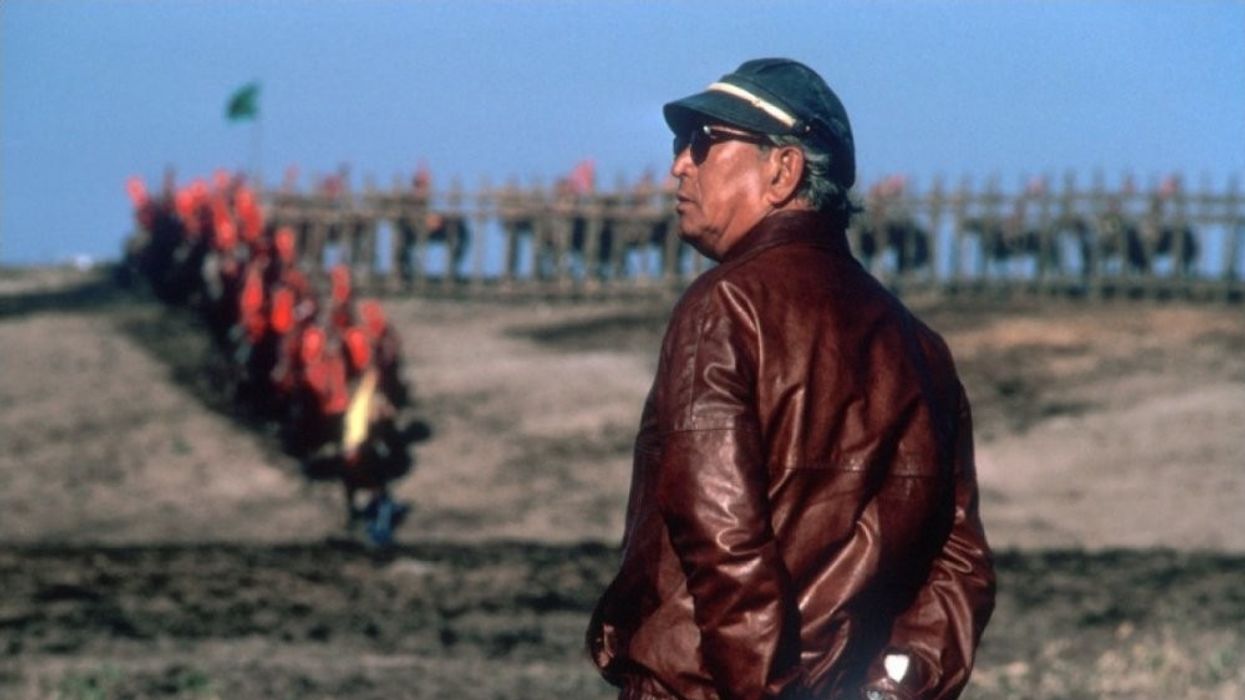What Was Akira Kurosawa's Humanist Point of View?
Akira Kurosawa wants you to be patient and focus on humanity.

Kurosawa spent almost 60 years making cinema and altering the way we see the film narrative. He was one of the most gifted craftsmen to ever live. He was someone who cared so much about his stories, camera movements, and actors, that it's no surprise that hiding underneath most of his movies is a very touching humanist theme.
But what is a humanist theme, and how did Kurosawa's legacy of masterpieces feed into it? As the video below says, "Kurosawa even seems to argue that it is inevitable: that ultimately, our conscience is more powerful in keeping us connected [to the nature of things] than our ego is in keeping us attached."
Check out this visual essay from Like Stories of Old, and let's talk after the jump.
This analysis exploring the humanistic themes and filmmaking philosophy found in the beautiful compositions of movement from the master of cinema, Kurosawa, was really intriguing and informative.
In his eulogy for the late filmmaker, critic Roger Ebert wrote, "[Kurosawa] combined two qualities not always found together in filmmakers. He was a visual stylist, and a thoughtful humanist. His films had a daring, exhilarating visual freedom, and a heart of deep human understanding. He often made movies about heroes, but their challenge was not simply to win; it was to make the right ethical choice."
Kurosawa's legacy was full of masterpieces, among them Stray Dog, Rashomon, Ikiru, The Seven Samurai, Throne of Blood, The Hidden Fortress, The Idiot, Yojimbo, High and Low, Red Beard, Dersu Uzala, Kagemusha, Ran, and many more.
While these films cover different times, persons, characters, and social strata, all are concerned with a person's place in this world and their relation to the people around them. These were struggles Kurosawa faced himself, attempting suicide in the early 70s, only to survive and come back to win his second Academy Award, receive a Lifetime Achievement Award, and to say in an interview in 1993, "Take myself, subtract movies, and the remainder is zero. I hope that all the people who have seen this picture will leave the theater feeling refreshed, with broad smiles on their faces."
Kurosawa's style is reflected in the director's deep-seated belief in the fundamental goodness and dignity of the human being.
That's basically the definition of an existential humanist at its core. His protagonists are usually caught in impossible situations. Whether they are images of Shakespeare or samurai, they are struggling against insurmountable odds. But they still have a belief that they are doing what's right, not just for them, but for the community as a whole.
The movies contain the notion of the "human spirit" that triumphs. It's not always about happy endings, but about what every story has to say about the human condition.
Let me know your favorite parts of Kurosawa films in the comments.
Source: Like Stories of Old











